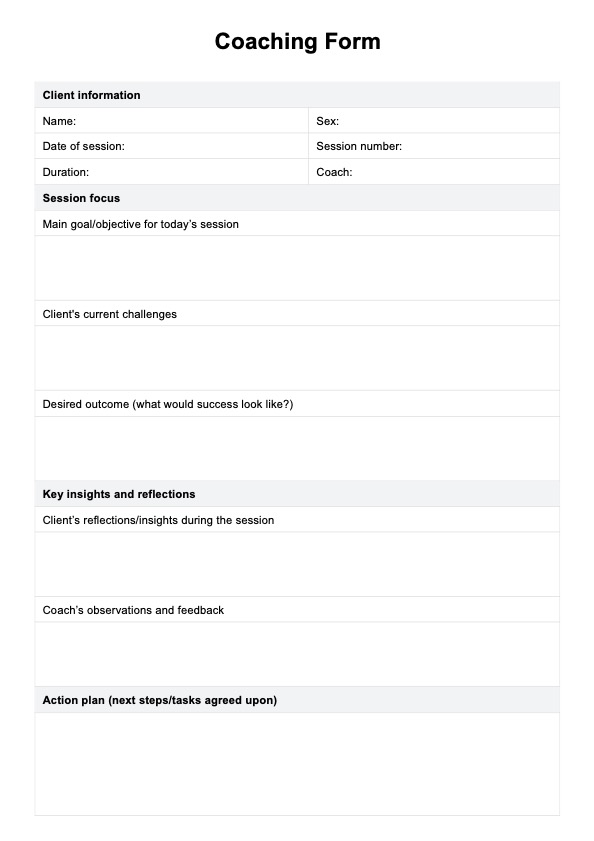Coaches and practitioners in various coaching disciplines, including life coaches, career coaches, executive coaches, business coaches, and health and wellness coaches, utilize Coaching Forms.

Coaching Form
Ensure an effective coaching process by using this Coaching Form. Facilitate goal-setting and honest conversation to achieve positive outcomes.
Use Template
Coaching Form Template
Commonly asked questions
Yes, many Coaching Forms are customizable, allowing coaches to tailor the content and format to align with their clients' coaching approach and unique needs.
Yes, with digital apps or software like Carepatron, clients can conveniently access and complete forms securely online, providing a paperless and efficient experience for both clients and coaches.
EHR and practice management software
Get started for free
*No credit card required
Free
$0/usd
Unlimited clients
Telehealth
1GB of storage
Client portal text
Automated billing and online payments











